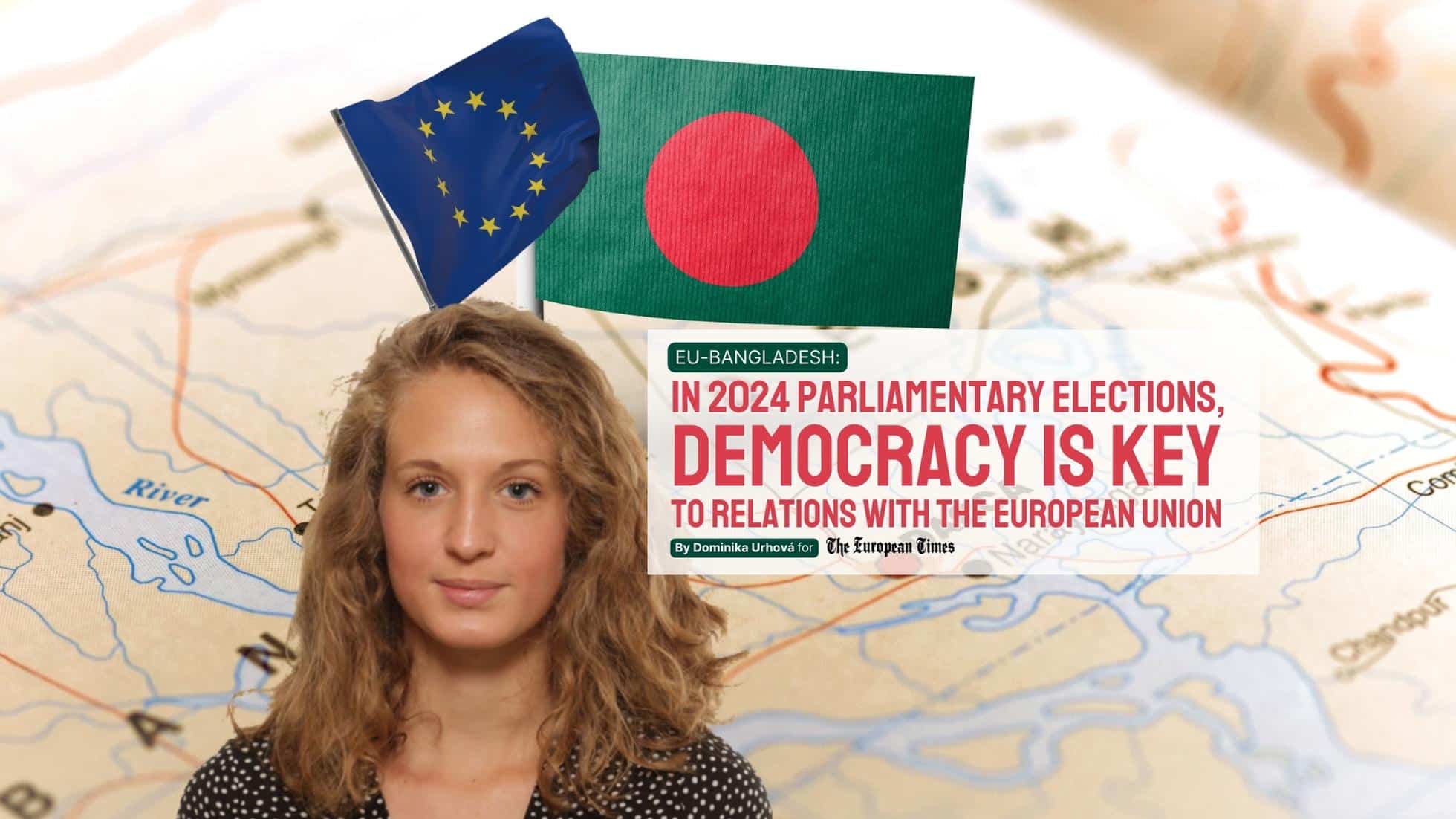Bangladesh has attracted the attention of political observers worldwide as it is expected to hold its next parliamentary elections in January 2024. The outcome of the upcoming elections will likely play a significant role in determining the future of EU-Bangladesh relations.
Bangladesh is facing mounting pressures from the United States, and the EU, to ensure the free, fair, and participatory nature of next year’s elections. In response, Bangladesh’s current Prime Minister Sheikh Hasina announced that the country will welcome EU and UK observers to monitor the electoral process.
140-150 EU observers to be received
An invitation has already been sent to the EU, which will dispatch an exploratory mission to Bangladesh in July this year for a 13-day visit. The mission is expected to meet representatives of the political parties, civil society, and media. The EU can later send a full-fledged observation mission of 140 to 150 observers.
Bangladesh has achieved extraordinary socio-economic development in the last decade and is expected to graduate from the Least Developed Countries (LDC) status in 2026. Charles Whiteley, the EU ambassador to Bangladesh, believes that if Bangladesh succeeds in carrying out free and fair parliamentary elections, it will send a clear signal to the EU that it possesses a political environment conducive to further expansion of EU-Bangladesh cooperation, which has so far seen fruitful results.
50 Years of EU-Bangladesh Relations
This year marks the 50th anniversary of EU-Bangladesh relations. Their past cooperation can be described as transformative and dynamic, to say the least.
The EU’s Everything But Arms (EBA) initiative has been the primary driving force behind the EU becoming Bangladesh’s largest trading partner, particularly in the garment industry, as it has already surpassed China as the largest exporter of garments to the EU, directing more than half of its exports to the bloc.
Bangladesh is also considered a success story of the EU’s Generalised Schemes of Preferences (GSP) which provides duty-free access to the EU’s market and is used to help the LDCs further their economic development. Over the years, Bangladesh’s cooperation with the EU has undergone a considerable shift from primarily focusing on development aid to diversifying their partnership across various sectors which now include climate change, governance, migration, and alike.
The EU praised Bangladesh for its impressive achievements concerning economic growth, poverty reduction, and the implementation of the National Action Plan on labour rights and workplace safety.
In addition, the EU-Bangladesh partnership reached a new high in November last year as they conducted the first-ever EU-Bangladesh Political Dialogue, which is now going to be held annually. The dialogue marks a further strengthening of EU-Bangladesh relations beyond the current focus of their cooperation, with collaboration in foreign policy, digital transformation, and security expected to take a central stage.
Notwithstanding the advancements in their relations, Bangladesh still faces several obstacles to further strengthening its cooperation with the EU. As Bangladesh becomes more prosperous and prepares for its transition from LDCs status to a middle-income economy, it will also have to renegotiate its trade agreements with the EU.
The European Union decided to extend its EBA scheme for Bangladesh until 2029, after which Bangladesh will be expected to sign 32 international conventions to qualify for the EU’s GSP+ programme. While Bangladesh is making good progress in areas such as climate change and work conditions, improving its human, civil, and political rights record needs to be addressed more effectively.
The EU as a Partner in Promoting Democracy
The upcoming elections allow Bangladesh to prove to international observers that it is on the right trajectory to become eligible for GSP+. Following European criticism of the 2014 and 2018 elections, the EU and other actors are particularly adamant in encouraging the two main political parties in Bangladesh, the Awami League and the BNP, to set aside their differences and ensure free, fair, and credible elections.
The US has even made the decision to impose visa restrictions on those that are proven to have interfered with and undermined the democratic process. These moves rightly denounce any alternative to democratic elections.
The EU hopes to see a similar situation to that of the 2008 elections, which were considered a step forward in successfully rehabilitating Bangladesh’s democracy following a military-backed caretaker government rule.
The elections were pronounced fair, free, and representative of Bangladesh’s citizens both by hundreds of international observers and the EU. The EU has also devised a plan to help Bangladesh consolidate its democratic processes by supporting key institutions, enhancing civil society, and improving civil-military relations, to name a few.
However, since then the democratic processes in Bangladesh were, and may still be, far from sustainable.
The nature of the elections, rather than the outcome itself, is likely to have a significant impact on the future of EU-Bangladeshi ties. Given the positive trajectory that Bangladesh has so far been enjoying in its relationship with the bloc, carrying out successful elections has the opportunity to further boost the EU’s trust in Bangladesh’s eligibility for transitioning to the GSP+ scheme. And given the growing interest of the international community, there is an opportunity for all parties in Bangladesh to prove their respect for the democratic process and not to amend it.





















Discussion about this post